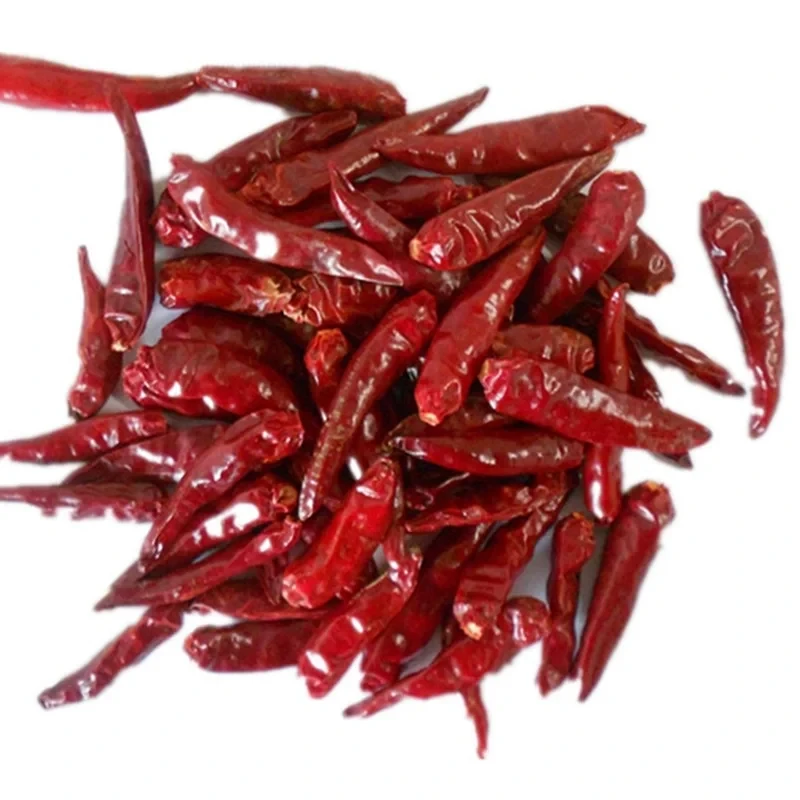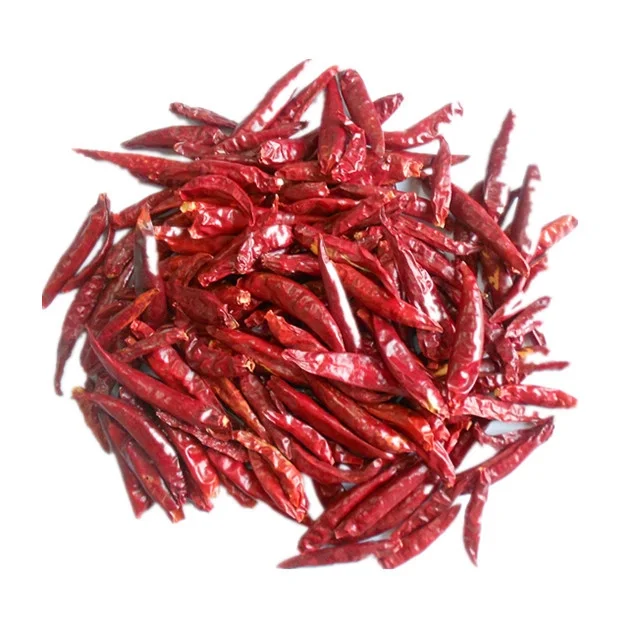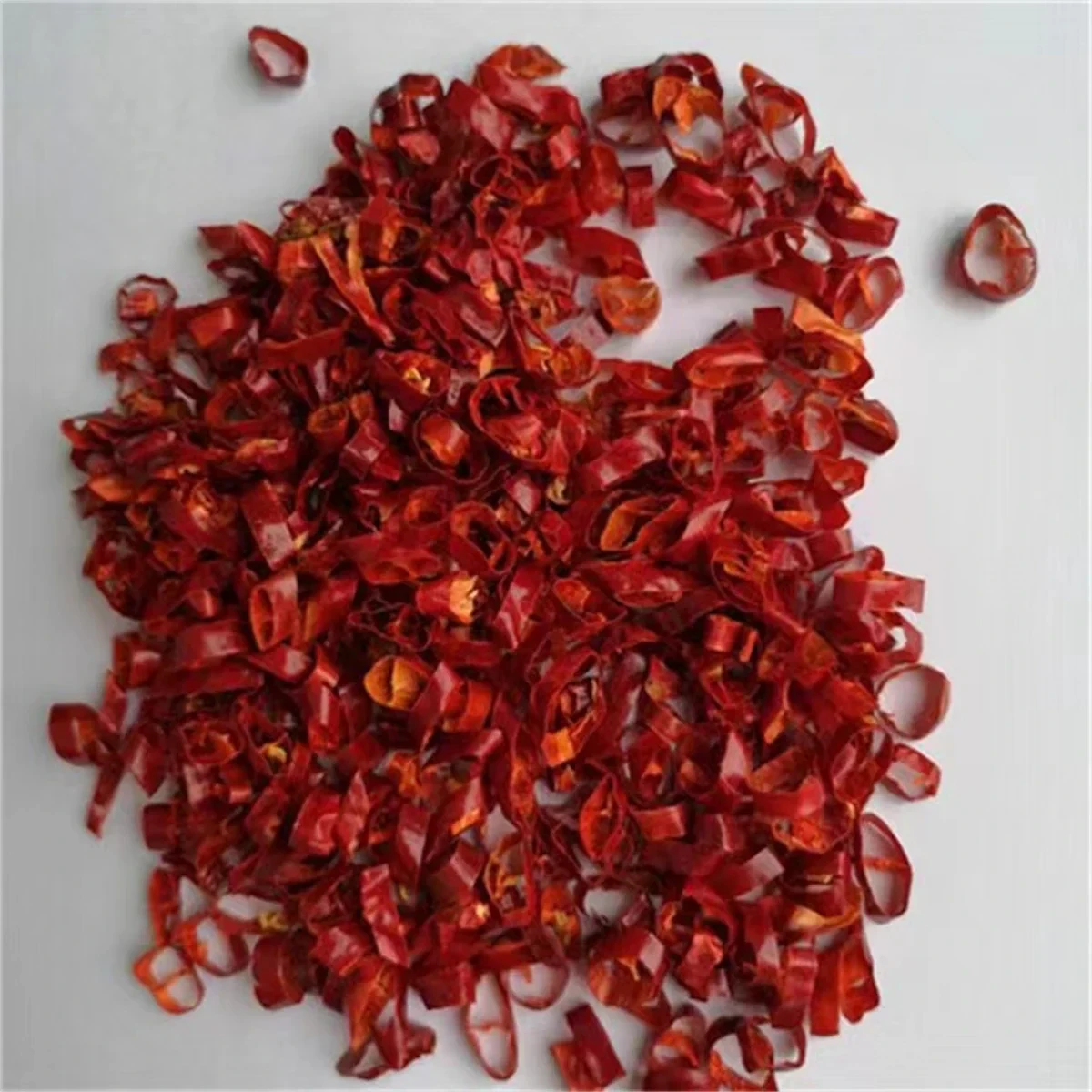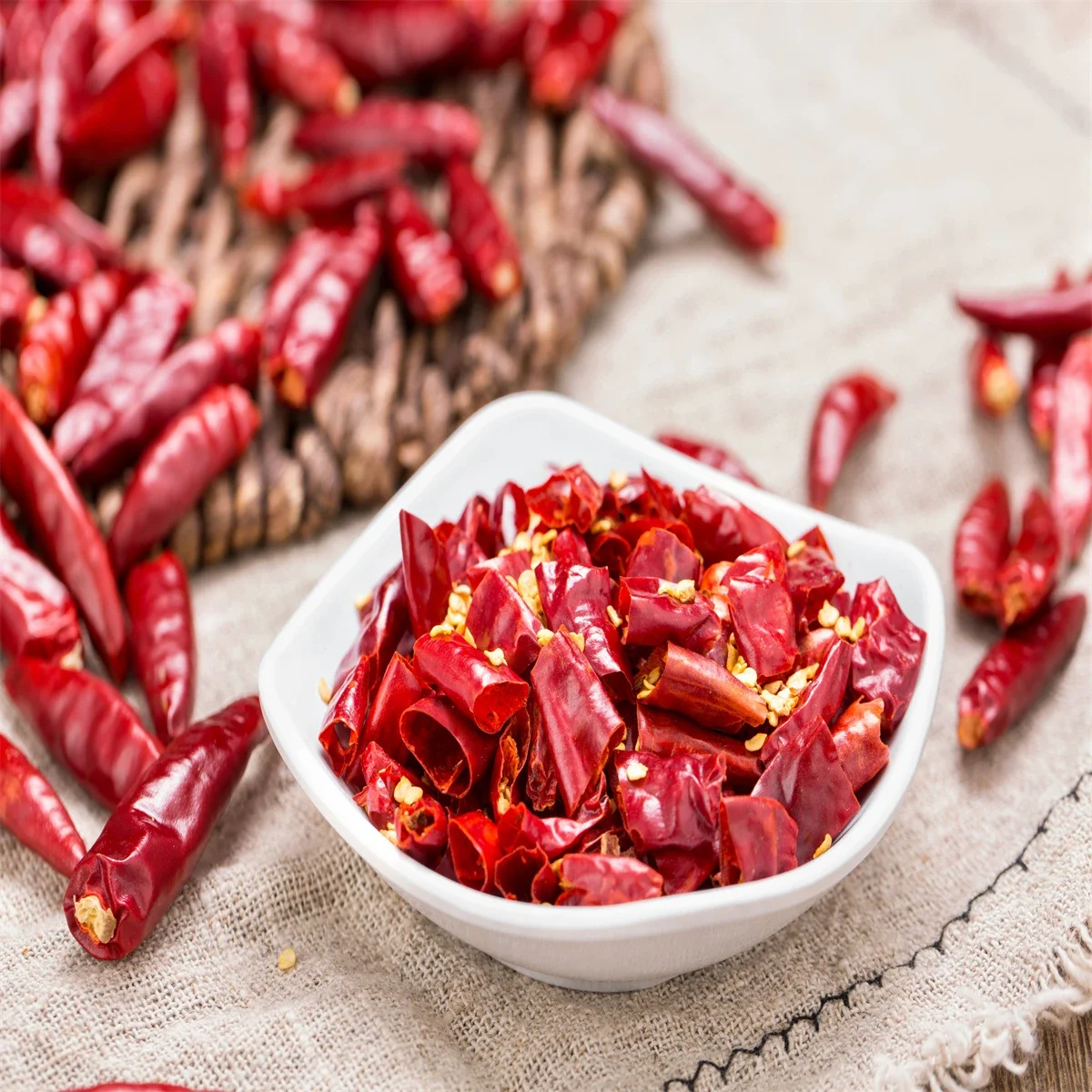Chili - The Spice of Life
Chili, a beloved spice used worldwide, is a versatile ingredient that adds depth, flavor, and heat to any dish. Known for its rich, spicy kick, chili peppers come in various forms, including fresh, dried, powdered, and as chili sauce or oil. Whether you're an adventurous cook or someone who enjoys adding a touch of heat to your meals, chili products offer the perfect solution.
Fresh Chili Peppers are vibrant, juicy, and packed with heat. From mild to extremely spicy varieties, fresh chilies can be sliced, diced, or used whole to infuse dishes with their pungent aroma. Great for stir-fries, salsas, and curries, fresh chilies add a fresh and bold flavor to your meals.
Dried Chili Peppers are perfect for slow-cooking and flavor extraction. When dried, chilies intensify their heat and smokiness. You can use them whole, ground into chili powder, or rehydrate them to create sauces and soups with a complex depth of flavor.
Chili Powder is a staple in kitchens around the world. A blend of dried chili peppers and other spices like cumin and garlic, chili powder adds a punch of heat and a savory aroma to dishes. Perfect for seasoning meats, soups, stews, and even grilled vegetables, chili powder offers convenience without compromising on flavor.
Chili Sauces and Oils are excellent for those who prefer a ready-to-use option. These products combine chili with ingredients like garlic, vinegar, or sesame oil to create flavorful sauces and oils that elevate your dishes instantly. Whether you like it sweet, tangy, or fiery, chili sauces and oils are perfect for dipping, marinating, or adding to your favorite foods.
Enhance your culinary creations with chili – a bold, flavorful ingredient that brings spice and excitement to every meal!
-

Chizvarwa chitsva chakaomeswa chili
30,000-40,000SHUIchi chizvarwa chitsva chakaomeswa chili inosarudzwa nemaoko uye yakaomeswa nezuva, ichichengetedza hunhu hwavo hwechinyakare uye nzira dzechinyakare dzekugadzira, zvichikonzera chinhu chepamusoro chekudya. Iyo 100% yakasikwa isina zvimwe zvinowedzera, inoratidzira ruvara rutsvuku, yakasarudzika flavour, inowirirana spiciness, uye yakasarudzika mhando. Inoshanda seimwe nzira ine hutano, ichibvumira vatengi kuti vagadzirise mwero wespiciness mundiro dzavo zvichienderana nezvavanofarira. Hunhu hwakasiyana hwechizvarwa chedu chitsva chakaomeswa chirimu chinoita kuti ive sarudzo inogoneka uye inokwezva kune vanofarira zvekubika.
-

Dried Tianying chili
8000-10,000SHUIyi yakaomeswa Tianying chili inosarudzwa nemaoko uye yakaomeswa nezuva, ichichengetedza hunhu hwavo hwechinyakare uye nzira dzechinyakare dzekugadzira, zvichikonzera chinhu chepamusoro chekudya. Iyo 100% yakasikwa isina chero zvinowedzera, ine inoyevedza ruvara rutsvuku, yakasarudzika flavour, inowirirana spiciness, uye yakasarudzika mhando. Inoshanda seimwe nzira ine hutano, ichibvumira vatengi kuti vagadzirise mwero wespiciness mundiro dzavo zvichienderana nezvavanofarira. Hunhu hwakasiyana hweTianying chili yedu yakaomeswa inoita kuti ive sarudzo inogoneka uye inokwezva kune vanofarira zvekubika.
-

Tianying mhete
8000-10,000SHUIyi chili yekucheka ndeye 100% yakasikwa pasina zvimwe zvinowedzera, ine ruvara rutsvuku rwakajeka, flavour yakasarudzika, spiciness inowirirana, uye hunhu hwakatanhamara. Inoshanda seimwe nzira ine hutano, ichibvumira vatengi kuti vagadzirise mwero wespiciness mundiro dzavo zvichienderana nezvavanofarira. Hunhu hwakasiyana hwechili yedu yakachekwa inoita kuti ive sarudzo inogoneka uye inokwezva kune vanofarira zvekubika.
Yedu chilli yekucheka inopa inogoneka sarudzo dzehupamhi hwakasiyana uye chikamu chembeu. isu takazvipira kugadzirisa zvakasiyana-siyana zvekugadzirisa zvinodiwa.
-

Tianying cut
8000-10,000SHUIyi chili yekucheka ndeye 100% yakasikwa pasina zvimwe zvinowedzera, ine ruvara rutsvuku rwakajeka, flavour yakasarudzika, spiciness inowirirana, uye hunhu hwakatanhamara. Inoshanda seimwe nzira ine hutano, ichibvumira vatengi kuti vagadzirise mwero wespiciness mundiro dzavo zvichienderana nezvavanofarira. Hunhu hwakasiyana hwechili yedu yakachekwa inoita kuti ive sarudzo inogoneka uye inokwezva kune vanofarira zvekubika.
Chiri yedu yekucheka inopa zvinogoneka sarudzo dzehurefu hwakasiyana uye chikamu chembeu. isu takazvipira kugadzirisa zvakasiyana-siyana zvekugadzirisa zvinodiwa.
What Is The Trick To A Good Chili?
Chili, a beloved spice used worldwide, is a versatile ingredient that adds depth, flavor, and heat to any dish. Known for its rich, spicy kick, chili peppers come in various forms, including fresh, dried, powdered, and as chili sauce or oil. Whether you're an adventurous cook or someone who enjoys adding a touch of heat to your meals, chili products offer the perfect solution.
Fresh Chili Peppers are vibrant, juicy, and packed with heat. From mild to extremely spicy varieties, fresh chilies can be sliced, diced, or used whole to infuse dishes with their pungent aroma. Great for stir-fries, salsas, and curries, fresh chilies add a fresh and bold flavor to your meals.
Dried Chili Peppers are perfect for slow-cooking and flavor extraction. When dried, chilies intensify their heat and smokiness. You can use them whole, ground into chili powder, or rehydrate them to create sauces and soups with a complex depth of flavor.
Chili Powder is a staple in kitchens around the world. A blend of dried chili peppers and other spices like cumin and garlic, chili powder adds a punch of heat and a savory aroma to dishes. Perfect for seasoning meats, soups, stews, and even grilled vegetables, chili powder offers convenience without compromising on flavor.
Chili Sauces and Oils are excellent for those who prefer a ready-to-use option. These products combine chili with ingredients like garlic, vinegar, or sesame oil to create flavorful sauces and oils that elevate your dishes instantly. Whether you like it sweet, tangy, or fiery, chili sauces and oils are perfect for dipping, marinating, or adding to your favorite foods.
Enhance your culinary creations with chili a bold, flavorful ingredient that brings spice and excitement to every meal!
Why Are Peppers Called Chili?
The term "chili" is often used to refer to various types of hot peppers, but its origin and usage are a bit more complex. Here’s why peppers are called "chili":
1.Etymology from Nahuatl (Aztec language):
The word "chili" comes from the Nahuatl language, which was spoken by the Aztecs and other indigenous peoples in Mesoamerica. In Nahuatl, the word for pepper is "ch? lli". The Aztecs and other native groups in Central and South America cultivated and used chili peppers long before Europeans arrived, and they were integral to their cuisine.
When Spanish explorers encountered these peppers in the Americas in the 15th and 16th centuries, they adopted the Nahuatl word "ch? lli" to describe them. The term eventually made its way into other languages, including English, where it became commonly used.
2. Naming Confusion and Global Spread:
The word "chili" is used differently around the world. In many places, "chili" refers to the fruit of the Capsicum plant, which can be used fresh, dried, or powdered to add heat to food. However, when used in the context of chili con carne (the famous spicy stew), the name "chili" specifically refers to the dish made with ground meat, chilies, beans, tomatoes, and spices.
In the U.S. and many English-speaking countries, the term "chili" has become synonymous with hot peppers, especially Capsicum annuum, which includes common varieties like jalapenos, serranos, and cayennes. However, in other parts of the world, like India and some parts of Asia, the term "chili" often refers to the spicier varieties of Capsicum that are commonly used in their cuisines.
3. "Chili" vs. "Chili Pepper":
In the 17th century, when Christopher Columbus brought the peppers back to Europe, they were initially thought to be a type of pepper (which they resemble in taste and appearance). The name “pepper” had already been used to describe the spicy fruit of the Piper nigrum plant (black pepper), and this led to the widespread use of the term "pepper" for the Capsicum family, despite them being botanically unrelated. Over time, the term "chili pepper" was adopted in many languages to differentiate the spicy peppers from black pepper.
In this sense, "chili" became shorthand for chili pepper, the pepper that imparts heat, especially from the Capsicum family, which includes many varieties of peppers that vary in heat intensity.
4. Cultural Influence and Usage:
The spread of chili peppers around the world, particularly after the Columbian Exchange (which was the exchange of plants, animals, and cultures between the Americas and the Old World), played a significant role in shaping global cuisine. As chili peppers became more commonly used in a wide range of dishes, the name “chili” was often applied to dishes and recipes that incorporated these peppers, such as chili con carne, chili oil, and chili sauce.
In summary, "chili" is derived from the Nahuatl word for pepper, "ch? lli", and has evolved in usage due to its widespread adoption in cuisines around the world. It’s used to refer to both the pepper itself and the dishes made with it, particularly those that are spicy and contain peppers.








